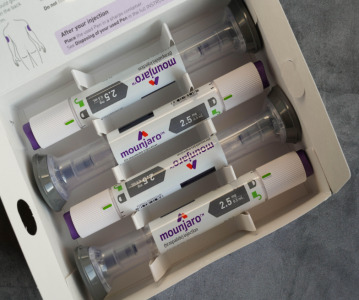Vertex receives Complete Response Letter from FDA regarding Kalydeco
Company plans to meet with FDA to determine appropriate path forward.
Vertex Pharmaceuticals has received a Complete Response Letter from the FDA for its supplemental New Drug Application (sNDA) for the use of Kalydeco (ivacaftor) in people with cystic fibrosis (CF) ages 2 and older who have one of 23 residual function mutations in the cystic fibrosis transmembrane conductance regulator (CFTR) gene. The FDA determined that it cannot approve the application in its present form. Vertex plans to meet with the FDA to determine an appropriate path forward.
"Our intention with this submission was to rapidly bring Kalydeco to additional people with CF who we believe may benefit," said Vertex Executive Vice President and Chief Medical Officer, Jeffrey Chodakewitz. "We chose to pursue this approach given our strong belief in the science of CF and in the well-established safety of KalydecoO across many different groups of people with CF. We are disappointed by this decision and look forward to discussing with the FDA the next steps to bring Kalydeco to people with CF who have these residual function mutations."
The sNDA is based on preclinical data for ivacaftor in residual function mutations, the established clinical profile of Kalydeco and on previously reported data from an exploratory Phase IIa study. In 19 of the 24 patients enrolled in this study, eight of the 23 mutations proposed in the sNDA were represented.
CF is caused by defective or missing cystic fibrosis transmembrane conductance regulator (CFTR) proteins resulting from mutations in the CFTR gene. The defective or missing proteins result in poor flow of salt (chloride) and water into and out of the cell in a number of organs, including the lungs. Chloride transport is a marker of the function of the CFTR protein at the cell surface. Kalydeco, which received the FDA's Breakthrough Therapy Designation in 2013, is currently approved in the US to treat people with CF ages 2 and older who have one of 10 mutations in the CFTR gene (G551D, G1244E, G1349D, G178R, G551S, S1251N, S1255P, S549N, S549R or R117H). As with the mutations for which Kalydeco is approved, this group of 23 residual function mutations is known to have some functional CFTR protein at the cell surface. This submission was also based on observed in vitro increases in chloride transport in response to ivacaftor in cells expressing CFTR. The presence of CFTR protein at the cell surface and increases in chloride transport are characteristics associated with clinical response to Kalydeco.
Related News
-
News The next 15 drugs up for negotiation with Medicare include several blockbusters
By now, everyone is quite familiar with the drug price negotiations taking place between drug companies and the Centres for Medicare & Medicaid Services (CMS) in the USA as part of measures being taken to reduce the cost of drugs for patients, to make ... -
News PSCI Welcomes Delpharm, Samsung Biologics, and Suven as First Supplier Partners
The pharmaceutical industry continues to evolve with an increasing focus on responsible sourcing, sustainability, and collaboration across the supply chain. Under a new model to recognise suppliers within the pharmaceutical and healthcare industry that... -
News Drug prices agreed upon as part of the US Inflation Reduction Act
The Inflation Reduction Act brought into constitution by the Biden administation in 2022, which proposed a drug price negotiation between the government and pharmaceutical companies, has reached it's first agreement. -
News Eisai Alzheimer’s drug authorised in UK but still faces obstacles
In partnership with BioArctic AB, pharmaceutical company Eisai has been granted Marketing Authorisation by the Medicines and Healthcare products Regulatory Agency (MHRA) for its Alzheimer’s disease drug product Leqembi. -
News Eli Lilly's weight loss drugs removed from the FDA's shortage list
The US FDA have recently updated their drug shortage list. The recently released list shows that all dosage forms of Eli Lilly's weight-loss drug Zepbound and their diabetes drug Mounjaro are now available. -
News Global advancements in the diagnosis and treatment of rare diseases: Rare Disease Day 2024
Rare Diseases Day is celebrated on the 29th February 2024 and represents the plight of rare disease patients to gain diagnosis and access to suitable treatment. -
News Pharmaceutical industry supports COP28 health stance in joint statement
As COP28 takes place over this week in Dubai, UAE, several bodies in the pharmaceutical and health industries have come together to announce support of key movements in sustainability in the sector, and to recognise sustainability as a health issue.&nb... -
News Biden backs Cold-War measures to shore-up medical supply chains
In a recent strategy to combat rising inflation and the cost of living crisis, President Joe Biden has invoked a Cold War-era act to increase investment in a selection of medicines and supplies.
Position your company at the heart of the global Pharma industry with a CPHI Online membership
-
Your products and solutions visible to thousands of visitors within the largest Pharma marketplace
-
Generate high-quality, engaged leads for your business, all year round
-
Promote your business as the industry’s thought-leader by hosting your reports, brochures and videos within your profile
-
Your company’s profile boosted at all participating CPHI events
-
An easy-to-use platform with a detailed dashboard showing your leads and performance



.png)



